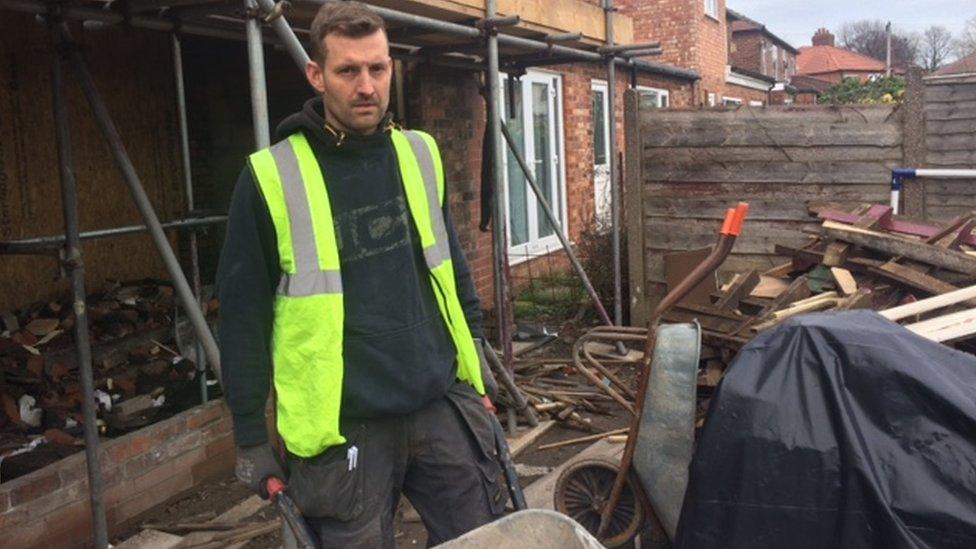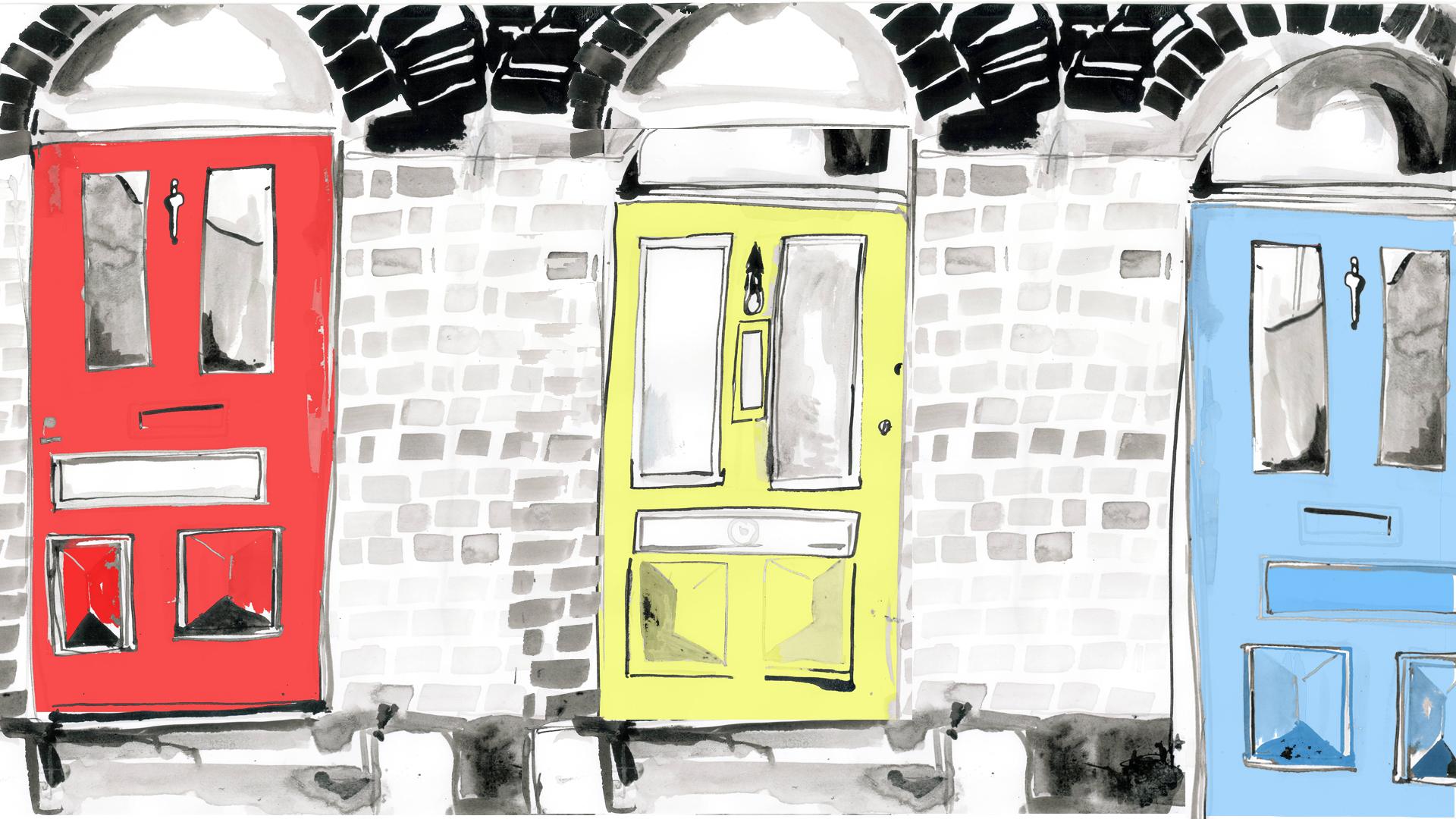Moving home is 'becoming a rarity'
- Published

Homeowners are moving half as often as they did before the credit crunch, figures produced for the BBC suggest.
Reasons include high house prices, stricter rules on getting mortgages and older people staying on in large properties.
People used to move house roughly four times after their first purchase. Now it is more like twice.
There is a boom in extending homes instead, as parents strive to create enough space to cram in their families.
"Those not trading up are the forgotten people of the housing market," said Lucian Cook, head of residential research at estate agent Savills.
"We've concentrated on first-time buyers. They get the concessions and all the focus has been on getting people onto the housing ladder."
Even so, Mr Cook said he was surprised at the results of research on moving, undertaken by Savills for BBC News, which showed:
Before 2008, homeowners moved, on average, 3.6 times, after buying their first property
In recent years, the slower pace of buying and selling suggests they will move, on average, 1.8 times over their lifetimes
Eddie Greenhalgh is extending his home in Burnage in Manchester in every direction he can and saving, he estimates, around £200,000 in the process.

Eddie Greenhalgh is building new rooms for his family home
"We spent endless hours on Rightmove but just couldn't find what we wanted, in the area we wanted, that we could afford," he said.
The Greenhalghs are installing rooms in the loft and building out to the side of the property and into the garden, doubling the space available for them and their three children.
They have moved twice in their lives so far.
"There will probably be one more move, to a care home," Eddie joked, "And that'll be it."

Quick and slow
Most frequent movers are in: Wandsworth, Basingstoke and Deane, Norwich, Rushmoor, Lambeth, Corby, Swindon, Aylesbury Vale, South Norfolk, Bracknell Forest.
Least frequent movers are in: Pembrokeshire, Harrow, Ceredigion, Blaenau Gwent, Brent, Wolverhampton, Isle of Anglesey, Sefton, Newham, Redbridge.
Source: Savills

It has long been a complaint in London and some parts of the South East of England that the next rung on the housing ladder is out of reach because of high prices.
But Savills says the problem has spread across the country and not just to other cities, like Manchester, where prices have taken off.
In other cases, places where property values have hardly moved, families are held back because they have made little or no profit on their existing homes.
Pembrokeshire and the London borough of Harrow, where homes typically sell once every 19 years, are at the top the list of slow-moving areas.
The rate is not much quicker, at 18 years, in Brent, Wolverhampton and Anglesey.
At the other end of the scale, some places have a Goldilocks local market, according to Savills, which is not too hot and not too cold and encourages people to move more frequently.
In Basingstoke, Swindon, Aylesbury, Bracknell and South Norfolk homes change hands every 10 years and trading up is still achievable for many.

Kieran Whitehead of Osbornes says the removals business has branched out
Fewer sales mean less work for removals firms. We found one, Osbornes, loading a truck with furniture and boxes near the Greenhalghs in Manchester.
"It really affects us as a business because there are fewer people for us to go and move," said Kieran Whitehead, of Osbornes.
"We've combated that by going into other industries, moving a lot more businesses. We've looked at the storage side of the company as well."
A Burnage estate agent, Peter Barlow, said that people thinking of putting family-sized homes on the market were put off when they looked in an agent's window and saw that so little was on offer to move to.
He said there was a particular problem with the older generation when they wanted to downsize.
"They want a bungalow and they just aren't available anymore," he said.
Impact on jobs
Mr Cook, from Savills, is worried about the impact on the economy. People spend money when they move and often it is the route to getting a better job.
"If you're finding it much more difficult to move, that has a big impact on labour mobility," he said.
There is an obvious alternative, which is to rent, and that is what some are doing even if they already have a property.
But increasingly Britain's homeowners are staying put, sometimes for decades.
Where can you afford to live? Try our housing calculator to see where you could rent or buy
This interactive content requires an internet connection and a modern browser.
- Published9 July 2020

- Published10 November 2017
